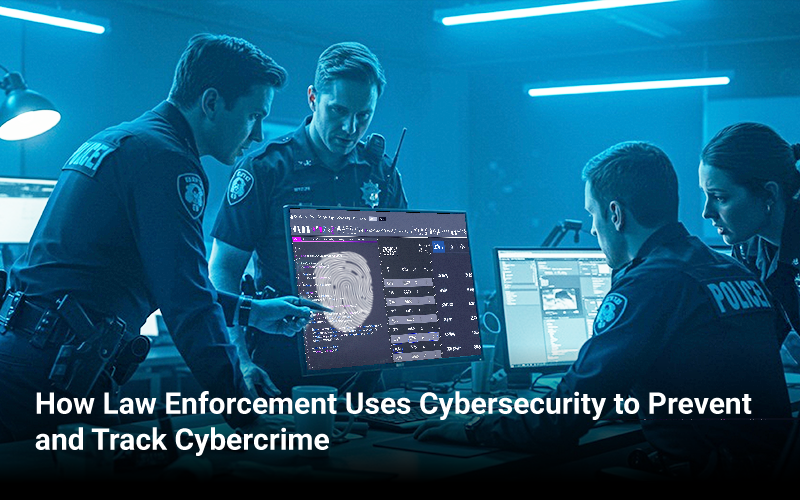Prioritizing a Cybersecurity Culture: Why Business Success Depends on It
There’s no escaping it – Digital transformation has become a priority for modern-day business. It’s easy to see why. Streamlined operations, greater efficiency, and global connectivity are just a few of the immense benefits that digital transformation brings. But what about the downsides? The risks? As organizations rush to embrace a digital-first approach to business, it’s imperative to consider what could happen when things go wrong. Cybercriminals have existed since the dawn of the internet, and they’re just as unrelenting in their efforts to exploit any weakness an organization may have. This is why businesses must also prioritize a robust cybersecurity culture within the workplace. The consequences of a cyber-breach, such as financial penalties and permanent reputational damage, can be the final nail in the coffin for any company. By embedding cybersecurity into the organizational ethos, business leaders can ensure that anyone who works there recognizes their role in protecting data and IT networks and systems, making a cybersecurity culture essential for driving innovation, maintaining competitive advantages, and fostering long-term business success.
How Cybersecurity Culture Improves Business: Real-World Examples
Data Protection
The bigger a business, the more sensitive data it handles. This data includes customer information, financial records, and intellectual property. A strong cybersecurity culture is critical for employees to appreciate the importance of protecting this data and follow best practices to prevent breaches.
Example: In response to increasing cyber threats, JPMorgan Chase invested $500 million annually in cybersecurity. This investment includes advanced threat detection systems, employee training, and collaboration with industry partners. As a result, JPMorgan Chase has enhanced its cyber-resilience and reinforced the security of its financial services and business data.
Prevention of Financial Losses
Theft, fraud, or disruption of operations that stem from cyberattacks can cause significant financial losses. A cybersecurity culture helps organizations reduce the risk of such attacks and avoid the associated costs.
Example: In 2013, Target Corporation suffered a large-scale hack that targeted the credit and debit card account details of over 40 million customers. The breach inflicted huge financial losses, including $18.5 million in settlements with 47 U.S. states. Following the breach, Target revamped its cybersecurity efforts, implementing advanced threat detection systems and enhancing employee training. These measures have helped prevent further incidents thus far.
Regulatory Compliance
Many industries must abide by strict cybersecurity regulations. A culture of cybersecurity keeps employees aware and compliant with these regulations, so an organization avoids legal penalties and fines.
Example: After the 2017 data breach that exposed the personal information of 147 million people, Equifax faced numerous regulatory penalties and lawsuits. This event prompted the company to invest in comprehensive cybersecurity measures to comply with regulations and restore trust, including encryption, multi-factor authentication, and regular security audits. These efforts helped Equifax meet regulatory requirements and avoid further legal penalties.
Building Customer Trust
Customers care deeply about safeguarding their personal information. Businesses known to promote a culture of cybersecurity can gain their customers’ trust more easily, while enhancing their reputation and nurturing customer loyalty.
Example: Apple‘s commitment to privacy and security is a cornerstone of its brand. Its loyal customer base trusts the organization to protect their data because it implements strong encryption and privacy features in all its products. This trust translates into customer retention and increased sales, demonstrating the business value of investing in a cybersecurity culture.
Maintenance of Business Continuity
Cyber incidents can disrupt business operations, leading to downtime and loss of productivity. A proactive cybersecurity culture empowers organizations to detect and respond to threats swiftly, thereby minimizing potential disruptions and maintaining business continuity.
Example: In 2017, the global shipping giant Maersk was hit by the NotPetya ransomware attack, which disrupted operations and caused an estimated $300 million in losses. Maersk responded by overhauling its cybersecurity infrastructure, including adopting cloud-based solutions and improving incident response protocols. These investments ensured that Maersk could quickly recover from future attacks and maintain ongoing operations.
Encouraging Innovation
A cybersecurity culture creates a healthy work environment where businesses can confidently adopt new technologies and innovate without fear of compromising security. This can drive growth and uncover greater competitive advantages.
Example: Microsoft‘s dedication to cybersecurity has enabled it to innovate without hesitation, making the organization a major player in cutting-edge and emerging technologies like Artificial Intelligence, Quantum Computing, Mixed Reality, IoT, Blockchain, and much more.
Employee Empowerment
When employees are educated about cybersecurity, they feel obliged to protect their organization’s digital assets. This leads to a more engaged and cyber-aware workforce.
Example: One of the primary ways that Netflix fosters a cybersecurity culture is by providing frequent employee training sessions. This has encouraged employees to become the first line of protection for content and user data, helping the company deliver a secure and seamless streaming experience to customers worldwide.
Competitive Advantage
Businesses with a positive reputation for taking cybersecurity seriously can differentiate themselves from competitors. This can attract customers and partners who prioritize cybersecurity, resulting in a potent competitive edge.
Example: IBM is renowned for implementing reliable cybersecurity integrations in its products and services, which has helped the organization develop a strong reputation for trustworthiness. Thanks to this competitive advantage, IBM attracts and retains customers who value data security.
Three Essential Steps to Build a Cybersecurity Culture at Workplace
1. Leadership Commitment and Communication
Leadership commitment is vital for instilling a sound cybersecurity culture. Executives and managers should lead by example and emphasize the importance of cybersecurity in their communications.
2. Tailored Security Awareness Programs
Tailored cybersecurity awareness programs for different employee groups can significantly enhance cybersecurity culture. Business leaders should collaborate with HR to organize regular training sessions that address specific threats relevant to each department.
3. Encouraging Safe Online Behavior
Encourage employees to be cautious with emails and links and provide clear guidelines on identifying suspicious activity. Regularly conducting phishing simulations and rewarding employees who successfully identify threats can reinforce safe online behavior and make cybersecurity a part of business as usual.
How EC-Council University is Improving the Global Cybersecurity Culture
EC-Council University’s fully-accredited online cybersecurity programs equip learners from across the globe with a solid foundation of cybersecurity skills and knowledge. Covering every aspect of modern cybersecurity, these programs cater to students yet to begin their careers, working professionals of a non-technical background eager to transition to a cybersecurity career, and cybersecurity professionals aspiring for leadership roles. We aim to leverage world-class cybersecurity education to improve the global cybersecurity culture.
Connect with us at [email protected] to find out more!







